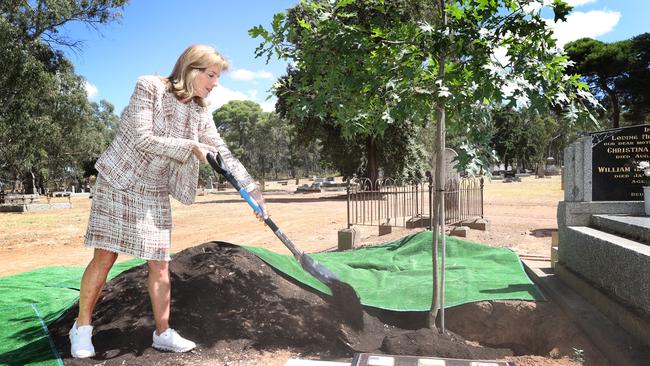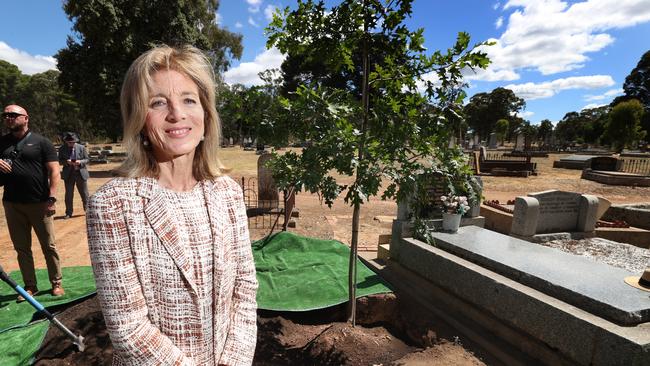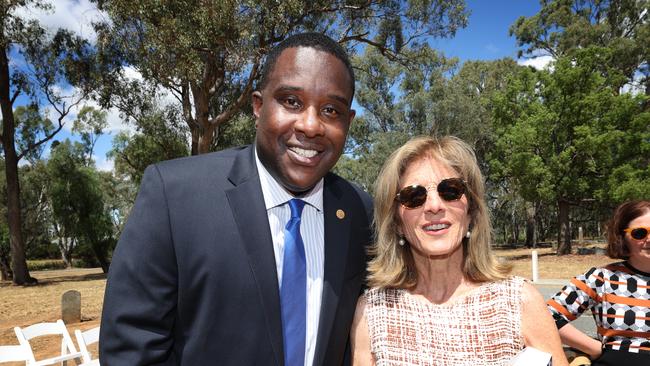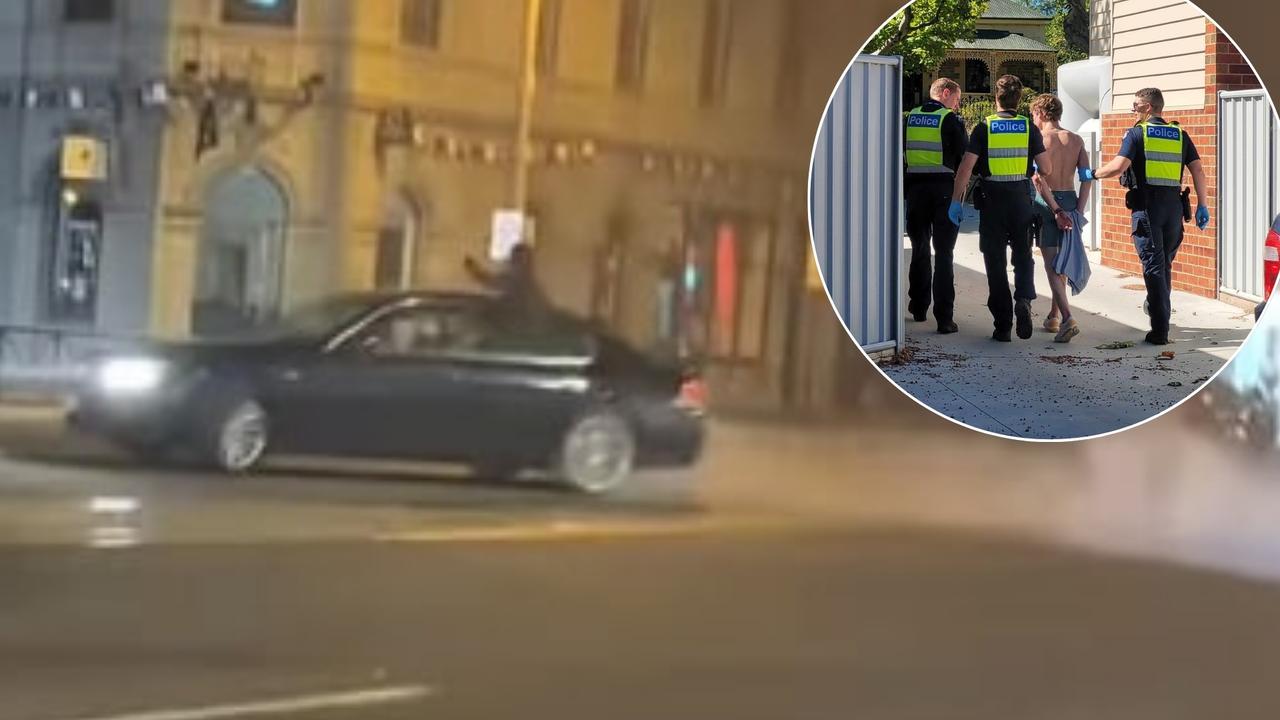Caroline Kennedy visits Bendigo: US Ambassador to Australia lays plaque
Caroline Kennedy visited Bendigo on Monday to right a historical wrong. See how an American influenced the course of Australian history.
Bendigo
Don't miss out on the headlines from Bendigo. Followed categories will be added to My News.
America has “no closer ally” than Australia, US Ambassador Caroline Kennedy has said.
She made the comment at the unveiling of a plaque at the White Hills cemetery to commemorate the life of US-born historical figure John Joseph.
The daughter of legendary American president John F Kennedy, said the story of Mr Joseph’s life was an important part of shared US/Australian history.
“It’s a privilege to serve my country here in Australia. The United States has no closer or more important ally,” she said.
“Our countries each have a complicated history but we are united by bonds of shared sacrifice, common values and a commitment to a peaceful future.”

Ms Kennedy said it was pertinent for the US to formally celebrate Mr Joseph’s contributions during Black History Month in America.
Mr Joseph played a pivotal role in the 1854 Eureka Stockade uprising on the Ballarat gold fields.

He was one of 13 men who were tried for treason, and acquitted.
Ms Kennedy said the US Consulate did not offer Mr Joseph any legal help at the time of his trial because, as a black man in 1854, he was not considered a citizen.
Slavery had not been abolished and the US was on the path to civil war at that time.
“Within the United States, 1854 was a year of extreme violence,” she said.
“Congress had passed the Kansas Nebraska Act allowing the extension of slavery into the western states triggering violence and setting the United States on the path towards a civil war in which 700,000 soldiers were killed.”

Mr Joseph died four years after his trial and was buried in an unmarked grave at White Hills.
Ms Kennedy unveiled the plaque in his honour and planted a tree on Monday to mark his resting place.
The fight on the goldfields over government regulation has gone down in Australian folklore and established the rebellion’s flag as one of one of our most recognisable symbols.
Ms Kennedy said his legacy was a lasting and significant one.
“His story is one for our time too as we face this history,” she said.
“We can ask ourselves who is missing from today’s narrative and what is our responsibility to make sure that they are included.
“We can be inspired by the courage of the miners and renew our commitment to justice for those who have been left out and left behind.
“We can take heart from the recognition that great progress has occurred while recognizing that there is much more to do.
“We can hold our governments accountable to their democratic promises and we can hold ourselves accountable for creating a more just and honest world.”




